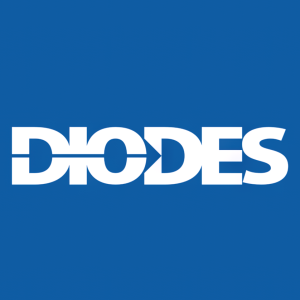Compact High Bandwidth 2:1 Mux/DeMux Switch from Diodes Incorporated Enables Routing with Superior Signal Integrity
Diodes Incorporated (Nasdaq: DIOD) has launched the PI2DBS16212A, a 4-to-2 differential mux/demux switch IC that supports data rates of up to 20Gbps. This device optimizes electrical characteristics such as insertion loss (-1.25dB at 10GHz) and provides strong signal integrity across a 14GHz bandwidth. It runs on a low supply voltage of 1.8V, consumes only 200μA, and features a compact 24-pin TQFN package priced at $0.9 in bulk. The product aims to enhance performance in high-speed applications like PCIe 4.0 and USB 3.2.
- Launch of the new PI2DBS16212A mux/demux switch IC, enhancing product offering.
- Supports data rates up to 20Gbps, ideal for high-performance IT equipment.
- Optimized dynamic electrical characteristics, including low insertion loss (-1.25dB at 10GHz) and minimal attenuation.
- Low power consumption of 200μA, providing a competitive edge over other switches.
- Compact design with a small footprint, facilitating easier integration.
- None.
Insights
Analyzing...
Diodes Incorporated (Nasdaq: DIOD) has added a new device to its range of passive multiplexer/demultiplexer (mux/demux) switches. Supporting data rates of up to 20Gbps, the PI2DBS16212A is a 4-to-2 differential channel switch IC, which offers bidirectional operation and is suited for use in high-performance IT equipment, including desktop PCs, laptops, workstations, and servers.
Thanks to the proprietary design approach employed, Diodes Incorporated has optimized the dynamic electrical characteristics of the PI2DBS16212A in relation to insertion loss, return loss, skew, and crosstalk. In addition to having a small footprint and low-profile, this device exhibits minimal attenuation across its 14GHz bandwidth. Insertion loss figures are kept to -1.25dB at 10GHz, while return loss is only -12dB at 10GHz. The device has a bit-to-bit skew of just 10ps (maximum), a 20ps (maximum) channel-to-channel skew, a 50ps (maximum) propagation delay, and a -40dB (typical) differential crosstalk (depending on frequency).
The strong signal integrity capabilities of the PI2DBS16212A mean that it is well suited to processing high-speed data signals, such as those relating to PCIe® 4.0, USB 3.2 Gen1, USB 3.2 Gen2, 10GE, Thunderbolt 3, SAS3.0 and SATA3.0. The device therefore gives far greater signal integrity tolerances for engineers to integrate into designs.
The PI2DBS16212A runs off a 1.8V supply voltage and draws only 200μA (typical) - thereby providing a lower power alternative to other mux/demux switches available on the market. An operational temperature range of -40°C to +85°C is covered. The PI2DBS16212A is supplied in a 24-pin TQFN package (with 2.5mm x 2.5mm x 0.75mm dimensions) and has a unit price of
PCI Express® and PCIe® are trademarks or registered trademarks and/or service marks of PCI-SIG Corporation.
SAS and all other SAS Institute Inc. product or service names are registered trademarks or trademarks of SAS Institute Inc. in the USA and other countries.
Thunderbolt and the Thunderbolt logo are trademarks of Intel Corporation or its subsidiaries.
About Diodes Incorporated
Diodes Incorporated (Nasdaq: DIOD), a Standard and Poor’s SmallCap 600 and Russell 3000 Index company, delivers high-quality semiconductor products to the world’s leading companies in the consumer electronics, computing, communications, industrial, and automotive markets. We leverage our expanded product portfolio of discrete, analog, and mixed-signal products and leading-edge packaging technology to meet customers’ needs. Our broad range of application-specific solutions and solutions-focused sales, coupled with worldwide operations of 31 sites, including engineering, testing, manufacturing, and customer service, enables us to be a premier provider for high-volume, high-growth markets. For more information visit www.Diodes.com.
View source version on businesswire.com: https://www.businesswire.com/news/home/20210608005113/en/







